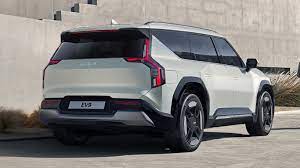effective strategies to reduce your energy expenses in 2025

In a context where energy costs continue to rise, the search for effective strategies to reduce your energy expenses in 2025 becomes essential. Adopting smart measures not only allows for a reduction in monthly bills, but also contributes to a more sustainable environment. This article explores practical practices that address everything from efficient lighting use to the incorporation of renewable energies, providing concrete solutions for a more economical and eco-friendly home.
In a context where energy prices keep rising, it is vital to implement effective strategies that allow us to reduce our electricity expenses. This article explores various tactics ranging from optimizing the use of appliances to adopting renewable energy sources. By implementing these tips, every home can become a model of sustainability and financial efficiency.
Optimization of Appliance Use
Appliances are responsible for a large part of energy consumption in the home. Researching and acquiring items with a high energy rating is an essential first step. By choosing appliances like refrigerators, washing machines, and LED lights, consumption can be reduced by more than 30%. Additionally, it is crucial to use these devices at times when electricity is cheaper, which can be determined by consulting the utility company’s rate schedule.
Efficient Use of Lighting
Lighting represents another area where significant savings can be made. Replacing incandescent bulbs with LED bulbs is not only an environmentally friendly change, but also reduces energy costs. By taking advantage of natural light during the day and using motion sensors in hallways and outdoors, electricity usage can be minimized. With the implementation of these measures, homes can contribute to a more efficient and sustainable environment.
Insulation and Thermal Efficiency
Ensuring that your home is well insulated is crucial for maintaining the appropriate temperature and reducing the use of heating or air conditioning. This can include sealing air leaks in windows and doors, using thermal curtains, and insulating the attic and walls. These measures not only keep the home comfortable, but can also significantly reduce energy bills.
Investment in Renewable Energies
The adoption of renewable energies, such as solar panels, has become an accessible investment for many households. Although the initial cost can be high, the long-term savings on the electric bill are significant. There are government incentives that can help offset these costs, allowing more families to access this technology that promotes energy independence and a low carbon footprint.
Intelligent Energy Consumption Management
Using technology that helps us monitor energy use is another important aspect. There are apps and devices that provide real-time data on electrical consumption. This information allows us to identify usage patterns and adjust behaviors to improve energy efficiency. By being aware of our consumption, we can make modifications to our daily routines that result in considerable savings.
Strategies for Consumption Schedules
Planning energy use based on rates is a key strategy. Some energy providers offer reduced prices during certain periods of the day. Shifting the use of large devices like washing machines or dryers to these times can result in a significant reduction in the electric bill. With this practice, it is possible to optimize spending and contribute to a more balanced energy demand.
Energy Education and Awareness
Last but not least, educating all household members about the importance of energy savings is essential. Creating awareness about sustainable practices, such as turning off lights when leaving a room or limiting the use of high-consumption devices, can be fundamental in cultivating responsible habits that reflect on the energy bill. Additionally, participating in community energy efficiency programs can be a great opportunity to learn and collaborate on saving initiatives.
The increase in energy costs in 2025 has led many to seek solutions to reduce their electricity bills. Adopting effective strategies not only helps to decrease these expenses, but also positively contributes to the environment. Implementing sustainable habits and using advanced technology are two paths that can be explored to achieve significant savings.
One of the first actions to consider is optimizing the use of lighting in the home. Replacing traditional bulbs with LED models and taking advantage of natural light during the day can result in considerable savings on the electricity bill. Additionally, establishing smart schedules for the use of appliances like the washing machine or dishwasher can help benefit from lower rates.
The investment in efficient appliances and renewable energy systems, such as solar panels, is another key strategy. Despite the initial cost, these systems can pay off quickly and translate into long-term savings. For example, homes equipped with solar panels can reduce their energy consumption by up to 90%.
It is also vital to pay attention to the maintenance of electrical systems, ensuring they operate optimally and can prevent unnecessary expenses. Conducting regular energy audits can identify areas for improvement and optimization, further driving energy savings.
Finally, being part of community initiatives on sustainability and energy saving can provide valuable knowledge and opportunities to apply collective strategies, contributing to a more environmentally friendly future. Adopting multiple approaches to reduce energy expenses in 2025 is a wise decision that will benefit both the household economy and the planet.





